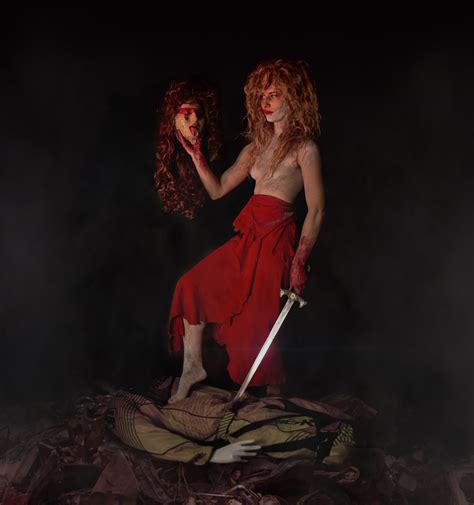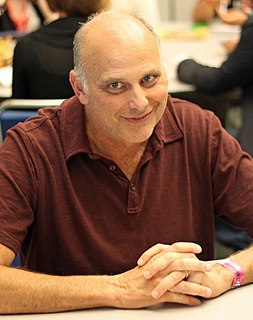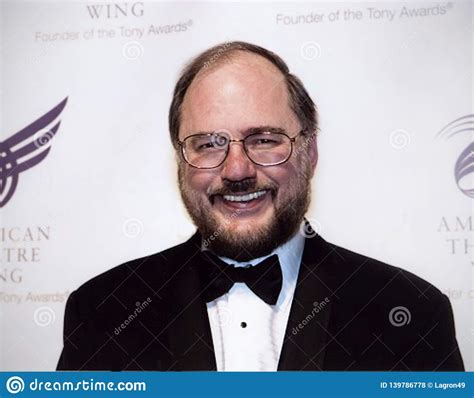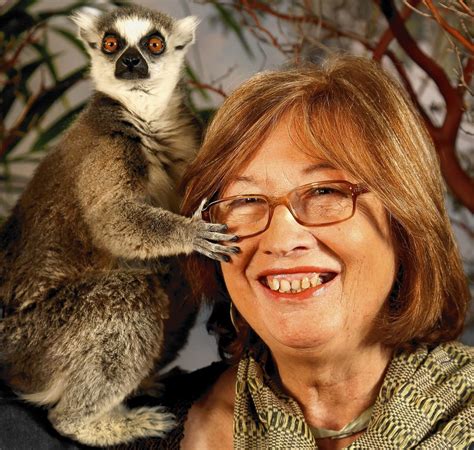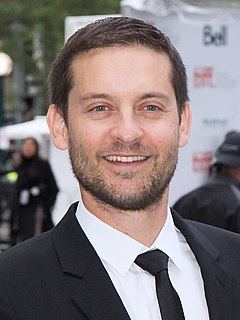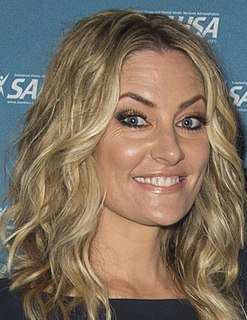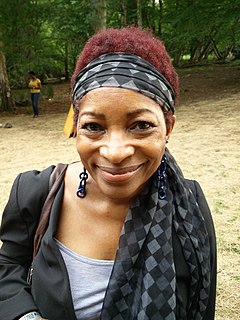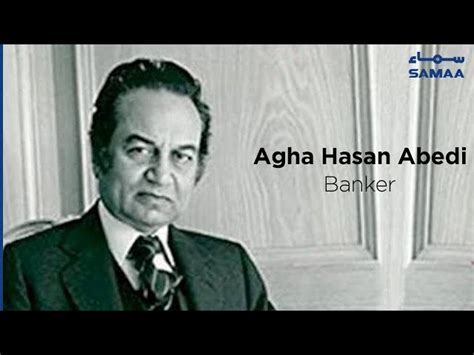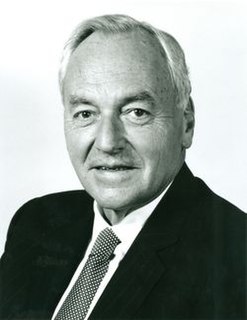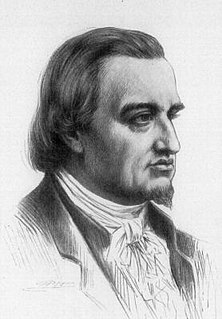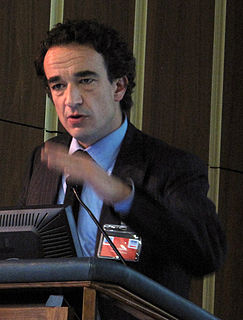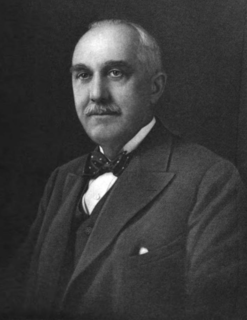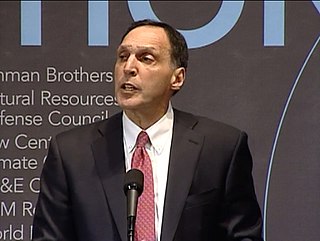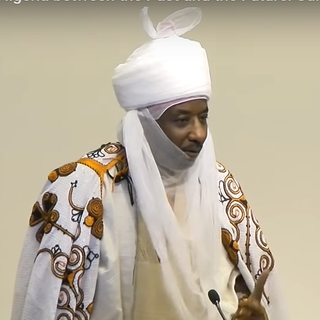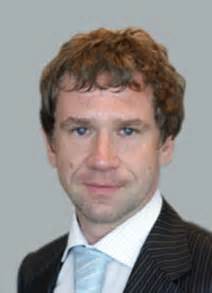Ein Zitat von Christine Jennings
Der fatale Fehler der meisten utopischen Visionen besteht darin, dass sie grundsätzlich statisch sind und das kein angenehmer Ort zum Leben für Menschen ist. Fourier war sehr gut darin, sich eine Utopie vorzustellen, die sich ständig verändert und sehr beschäftigt ist, aber eine Vision vom Paradies, die für einen unterernährten, überarbeiteten Fabrikarbeiter im Jahr 1840 am verlockendsten gewesen wäre, hat in der Fiktion keinen großen Reiz, weil es keine Geschichte ist.
Themen zitieren
Verwandte Zitate
Ich habe das Gefühl, dass Utopie weder hier noch dort ist. Es ist der Raum, in dem man sich am präsentesten fühlt, und das kann auf Tour oder zu Hause sein. Auf einer Tour ist es einfacher, an diesen Ort zu gelangen, weil sich die Umgebung ständig verändert. Und aus einer sehr ursprünglichen, evolutionären Perspektive heraus hat man ein erhöhtes Bewusstsein, wenn man sich an einem unbekannten Ort befindet, sodass man leichter auf diesen Zustand zugreifen kann.
Utopie ist eine Meta-Utopie: die Umgebung, in der utopische Experimente ausprobiert werden können; das Umfeld, in dem die Menschen frei sind, ihr eigenes Ding zu machen; das Umfeld, das zu einem großen Teil zuerst verwirklicht werden muss, wenn spezifischere utopische Visionen stabil verwirklicht werden sollen.
Die meisten meiner Erfahrungen waren positiv. Ich weiß, dass ich ein sehr gutes Leben führe. Ich bin deutlich überbezahlt, aber es gibt Menschen, die viel überbezahlter sind als ich. Ich hatte großes Glück, und das weiß ich, denn ich sehe ständig Leute, die Probleme haben und keinen Cent verdienen können, und sie sind viel bessere Schauspieler als ich.
Das Wort „Utopie“ hat zwei Bedeutungen. Es bedeutet sowohl „guter Ort“ als auch „nirgendwo“. So sollte es sein. Die glücklichsten Orte sind meiner Meinung nach diejenigen, die direkt auf dieser Seite des Paradieses liegen. Es wäre unerträglich, mit dem perfekten Menschen zusammenzuleben; Ebenso möchten wir auch nicht am perfekten Ort leben. „Ein Leben voller Glück! Kein Mensch könnte es ertragen: Es wäre die Hölle auf Erden“, schrieb George Bernard Shaw in seinem Stück Man and Superman.
Ich habe in meiner Karriere versucht, fast alles zu tun, weil mich alles fasziniert. Und ich habe festgestellt, dass ich beim ersten Mal, wenn ich in einer neuen Form arbeite, all die Dinge entdecke, die das zu einem spannenden Medium machen. Ich war die meiste Zeit meiner Karriere sehr beschäftigt. Ich hatte nur sehr wenige Ferien.
„Divergent“ war meine utopische Welt. Ich meine, das war nicht der Plan. Ich hatte nie vor, dystopische Fiktion zu schreiben, das war genau das, was ich hatte, als ich fertig war. Am Anfang habe ich nur über einen Ort geschrieben, den ich interessant fand, und über eine Figur mit einer fesselnden Geschichte, und als ich begann, die Welt aufzubauen, wurde mir klar, dass es meine Utopie war.
Ich bin der festen Überzeugung, dass alle Probleme in der Gesellschaft nicht darauf zurückzuführen sind, dass einige Menschen schlecht und andere gut sind und wir alle falschen Menschen loswerden müssen. Alles, was wir reparieren wollen, ist auf einen Fehler im Menschen im Allgemeinen zurückzuführen, etwas, das Menschen gemeinsam falsch machen.
Mein erster Job war eigentlich Sozialarbeiter. Und später promovierte ich in Anthropologie. Und ich habe mich schon immer sowohl für Menschen als auch für Primaten interessiert. Wir haben alle im Grunde die gleichen Gefühle, die gleichen Ziele und das gleiche Leben. Aber als ich zum ersten Mal nach Madagaskar kam, wurde mir klar, dass das Leben der Lemuren sehr eng mit dem zusammenhängt, was die Menschen tun; teilweise, weil sie beide dazu gebracht haben, nach natürlichen Ressourcen zu suchen. Und wenn es uns gelingt, Menschen und Lemuren ein friedliches und glückliches Zusammenleben zu ermöglichen, wäre das mein Ziel für Madagaskar.
Was als utopische Vision beginnt, endet immer – immer – in Blutvergießen. Denn man muss einem freien Volk eine Utopie aufzwingen. Freie Menschen wollen ihr eigenes Glück anstreben, aber ein einheitlicher Ansatz erfordert, dass die Freien gegen ihren Willen in die Vorstellung des Staates hineingetrieben werden, was richtig ist. Dann ist es keine Utopie.
Die Vision sowohl des [französischen Utopisten] Charles Fourier als auch Robert Owen bestand darin, dass eine ganze Stadt in eine Struktur passt. Owens Entwurf für das, was er ein „Parallelogramm“ nannte, bestand im Wesentlichen darin, eine ganze Stadt in einem Gebäude zu unterbringen, das um ein riesiges Viereck herum angelegt war. Fouriers Plan bestand darin, ein massives Versailles-ähnliches Bauwerk zu errichten, das er „Phalansterie“ nannte. In beiden Fällen hatten sie architektonische Träume, die wir heute als ziemlich unattraktiv empfinden.
Größtenteils ist es ein sehr männerdominiertes Geschäft. Die meisten Führungskräfte sind männlich, es kommt also immer auf ihre Sichtweise an. Ich kämpfe ständig dagegen, auch wenn ich die Frau, die Freundin oder den besten Freund spiele. Ich gebe immer mein Bestes, um möglichst viel Schichtung einzubringen und die Dinge nicht stereotyp zu machen, aber es ist schwierig.
Natürlich reicht die Tatsache, dass Dostojewski eine spannende Geschichte erzählen kann, nicht aus, um ihn großartig zu machen. Wenn dem so wäre, wären Judith Krantz und John Grisham großartige Romanautoren, und selbst wenn man von den meisten kommerziellen Maßstäben absieht, sind sie nicht einmal besonders gut.

